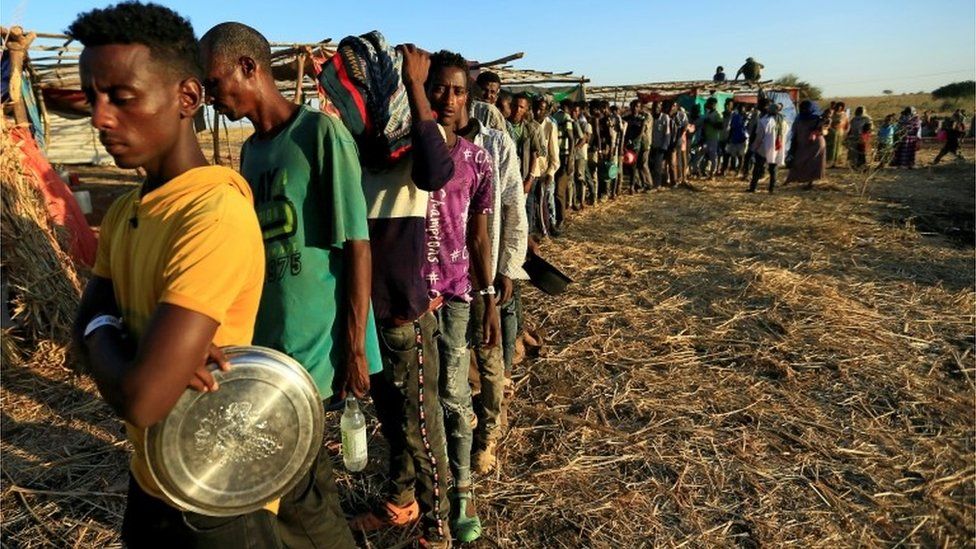
Researchers have confirmed 1,329 hunger-related deaths in Ethiopia’s northern Tigray region since a cease-fire concluded a two-year conflict there in November.
According to a study conducted by local health authorities and Mekele University in the regional capital, hunger has become the leading cause of death in Tigray, accounting for over 68% of the deaths examined by the researchers.
The study relied on a household census conducted by health workers in nine subdistricts of Tigray and 53 camps for internally displaced people, which took place from August 15 to August 29.
Given that Tigray comprises 88 subdistricts and 643 displacement camps, it’s highly likely that the actual number of hunger-related deaths across the entire region is significantly higher.
One contributing factor to the hunger crisis in Tigray is the suspension of food aid by the United States and United Nations. This suspension was prompted by the discovery in March of a large-scale scheme to steal humanitarian grain in Tigray. Subsequently, the pause in aid was extended to the rest of Ethiopia in June when it became evident that the theft was occurring on a nationwide scale.
Ethiopia’s government is seeking an end to the suspension of food aid, while the U.S. government and the United Nations are calling for the Ethiopian government to relinquish control of the food aid delivery system.
The researchers recorded a significant increase in the number of deaths from all causes in the Tigray areas studied after the aid suspension.
The death toll nearly doubled, rising from 159 in March to 305 in July.
Approximately 5.4 million out of Tigray’s 6 million population depended on humanitarian aid, and across Ethiopia, more than 20 million people are in need of food assistance.
The study’s findings are outlined in a document obtained by media and compiled by the Tigray Emergency Coordination Center, which consists of U.N. agencies, humanitarian organisations, and regional government offices.
Throughout the conflict between Ethiopian and allied forces and Tigray fighters, hunger has been a persistent issue in Tigray. During this time, the federal government reduced services in the region and limited access to aid, leading U.N. experts to accuse it of employing hunger as a weapon.
The government denied allegations of weaponizing aid and instead attributed the lack of access to Tigray fighters.
Hopes for aid reaching the region were ignited following November’s cease-fire, but they were dashed when a massive theft was uncovered, including the sale of grain from U.S.-marked bags in local markets.
Tigray authorities discovered that a staggering 7,000 metric tons of grain had been stolen. Earlier this month, the region’s leader announced the arrest of 480 officials in connection with the corruption.
Other regions in Ethiopia have not yet disclosed the results of their own investigations into the grain theft. The United States and the United Nations World Food Program are also conducting their own investigations.
